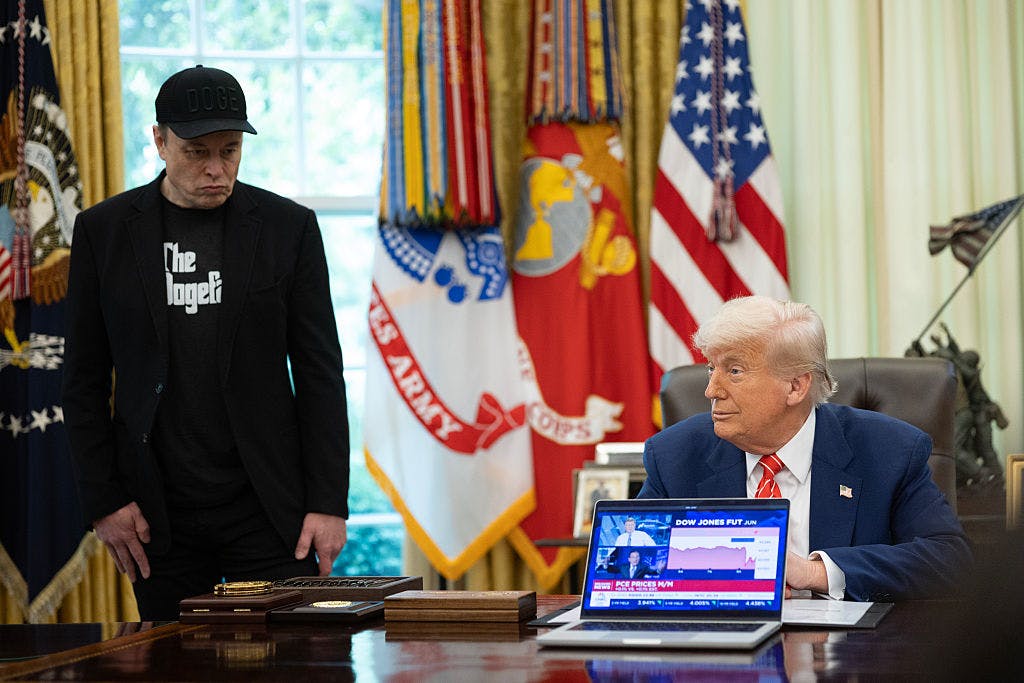The number of bearish options bets against Tesla hit a record high last week amid Trump-Musk feud
Bullish bets on TSLA soared too, but it was put volumes that hit a record high last week.
Even with the memory of last week’s social media tirade still fresh in traders’ minds, investors have found reasons to pile back into Tesla’s stock as CEO Elon Musk has struck a more conciliatory tone in posts on X. The electric vehicle maker’s share price is up more than 13% from the lows of last week, climbing another 2.5% in premarket trading this morning.
But options activity shows just how negative the sentiment had become during the feud, with put volumes — options bets against Tesla — crossing over 4 million on Thursday, the highest daily volume on record, according to data from FactSet.
That’s more than were traded in early 2023, during the pandemic, or any of the company’s major crises.
It’s worth noting that bullish bets on the company also rose significantly, with call volumes of more than 3.3 million recorded on June 5 — the fourth-highest daily figure on record.
Though the sheer amount of volume in Tesla was remarkable last Thursday, with more than 287 million shares trading hands in the underlying security — and though the bets tended to skew bearish — this wasn’t the most lopsided that the options market has been in the name. Indeed, the put/call ratio only touched 1.2; it’s been much higher before, even in the past 18 months, topping 1.6 in March and April of last year.
